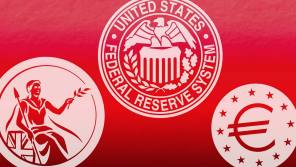

Continental European investors are paying for low-grade advice that they don’t even know that they are receiving, a study has shown.
More than a third of investors in Continental Europe who describe themselves as taking a fully self-directed approach are in fact paying for advice from their retail bank branch through a product fee, a study from Platforum revealed.
The look at the behaviour of European investors showed that even though 45 per cent claim they deal with their investments entirely by themselves, only 29 per cent are fully self directed.
Rodolfo Crespo, senior analyst of Platforum, said the mismatch between perception and provision of advice is greatest in Spain and Italy, where banks control nearly all retail distribution.
“The mismatch suggests that many investors don’t value the advice they receive in their local bank. It also suggests that the advice is of low quality and intensity of advice, and lacks the rigorous (and memorable) fact finds that advised investors typically undergo in the UK,” he said
In continental Europe, with the exception of the Netherlands, retail banks provide in-branch advice on investments and often control most distribution channels.
This advice, which Mr Crespo described as “basic” comes at a cost that isn’t split out.
It is covered by a product charge that includes a fund manager commission to the bank in question.
More than half of investors who claim to be self-directed in Italy and Spain have actually received this type of advice.
Mr Crespo said that the advice given in bank branches is very basic, with the exception of that given to private banking clients.
Mr Crespo said that more transparency was needed in continental Europe when it comes to financial advice.
He added the new Mifid II rules will not “be game changing in the short term”, because most banks will provide tied and restricted advice “because independent advice carries stricter requirements and a complete ban on commission payments.”
Mifid II requires reporting of product charges in the form or an aggregation and summary indicators
of one-off, ongoing, contingent and transaction costs.
However, he added that European regulators, such as German’s BaFin are taking the opportunity to enhance the quality of financial advice.
rosie.murray-west@ft.com



